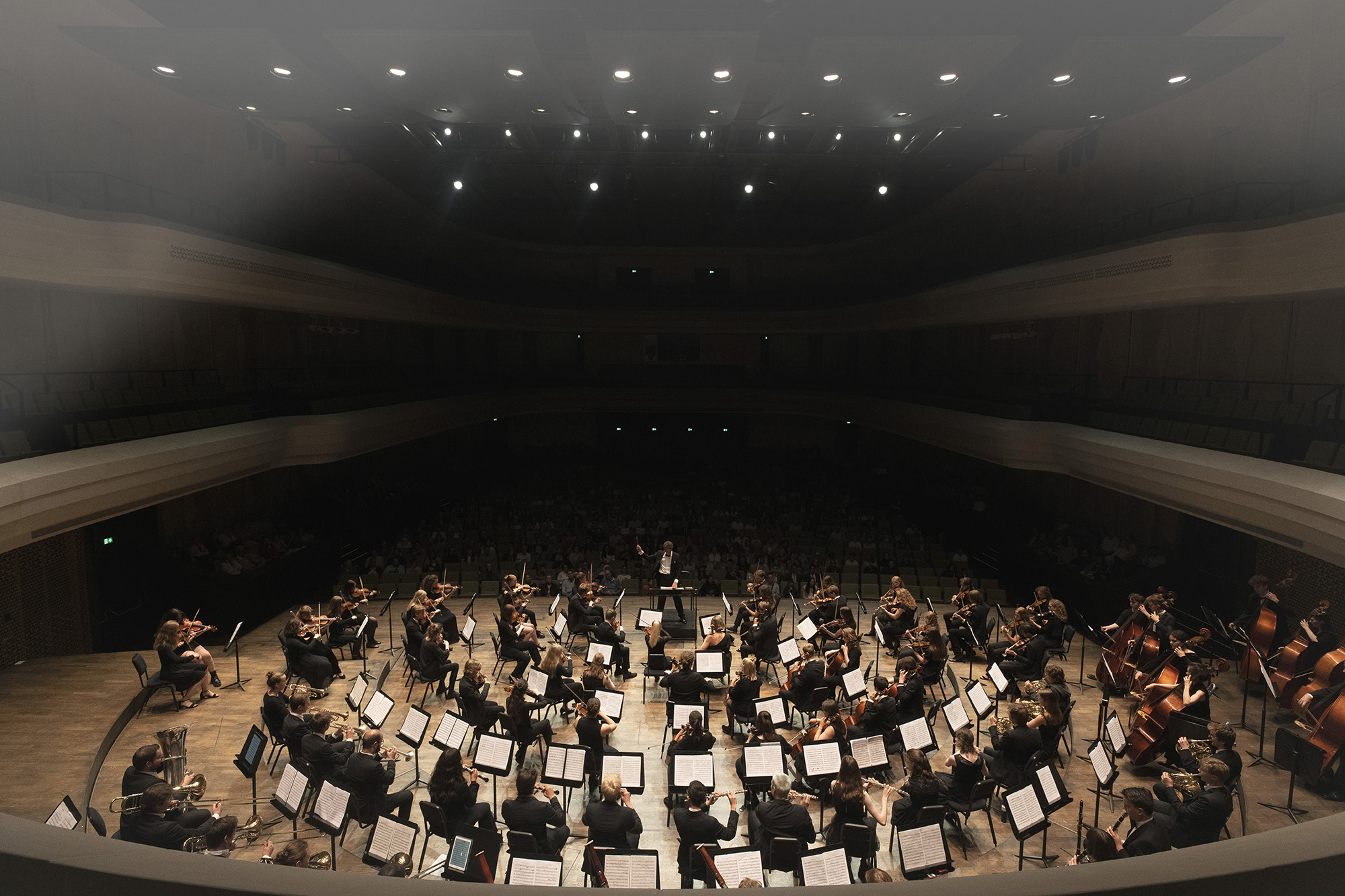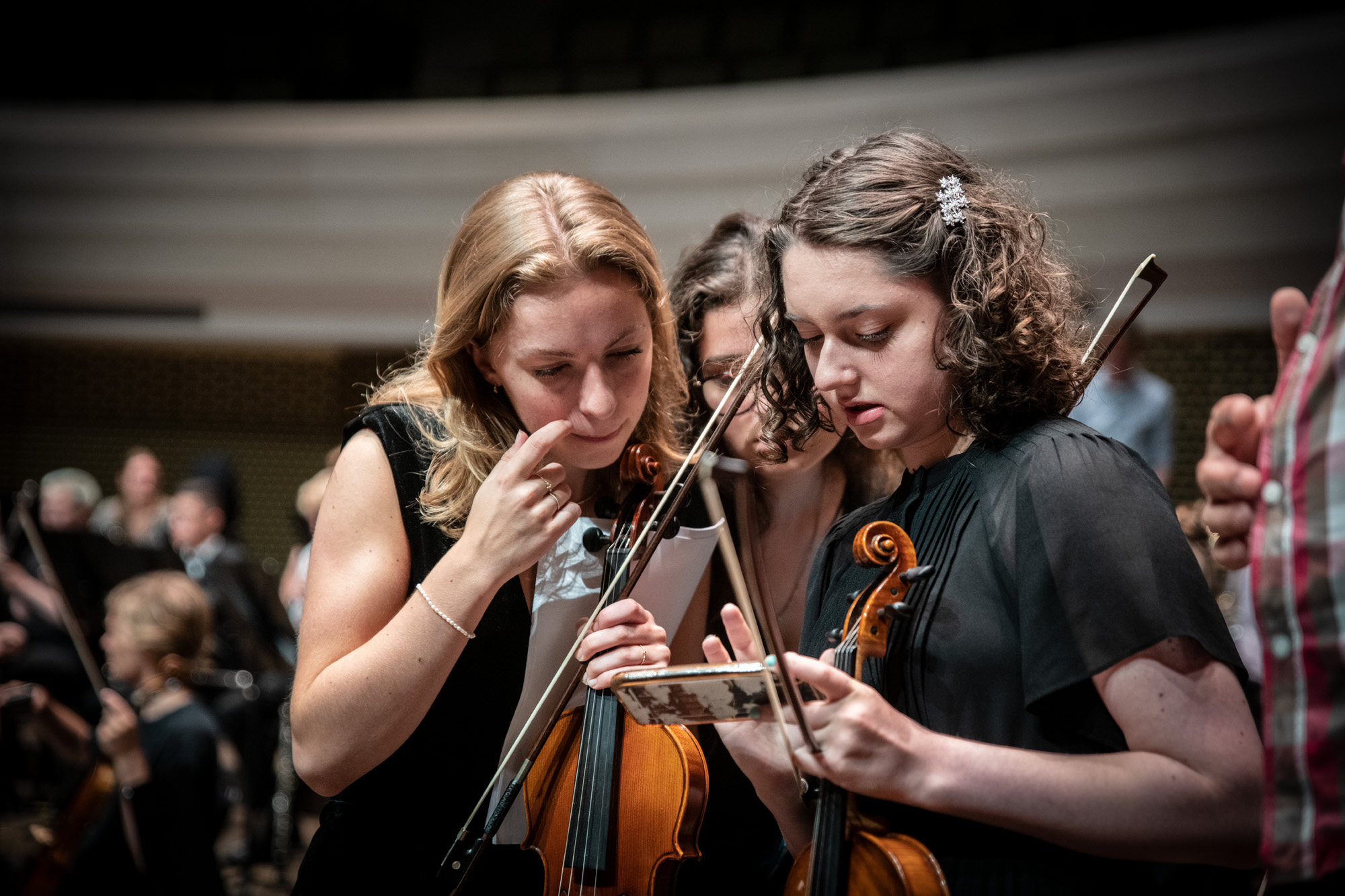Met de VIOTTA-akkoorden zorgen we ervoor dat de stemming in onze orkesten op alle mogelijke manieren goed is en goed blijft. De VIOTTA-akkoorden zijn onze sociale en muzikale bouwstenen (see for English below).
|
|
 |
- Spelen in een orkest is een gezamenlijke activiteit. We zijn één team. Alleen als iedereen er is, is er een orkest waardoor we muziek kunnen maken.
- Orkestleden, vrijwilligers en dirigenten zijn samen verantwoordelijk voor een sociaal veilige en open sfeer in het orkest.
- We leren van elkaar en ondersteunen elkaar, bijvoorbeeld met partijen instuderen, met stemmen en met de orkestopstelling neerzetten.
- Orkestleden zijn zelf verantwoordelijk voor hun instrument en bladmuziek en zetten zich in om hun orkestpartij zo goed mogelijk te kunnen spelen.
- Orkestleden volgen individuele lessen op hun instrument bij een professionele docent en nemen de orkestpartijen mee naar les als dat nodig is om de partij te kunnen spelen.
- De dirigent heeft oog voor de ontwikkeling van elk orkestlid en past zonodig de orkestpartij aan.
- De leden van de bovenbouworkesten, JO, JS en SO, zorgen dat zij voor het begin van de repetitie ingespeeld en gestemd zijn opdat de dirigent op tijd kan beginnen.
- Orkestleden zetten zich in om zo min mogelijk repetities te missen en tonen betrokkenheid bij de activiteiten van hun orkest en van de vereniging als geheel.
- Als een orkestlid meerdere repetities heeft gemist, volgt overleg met de dirigent waarin aan de orde kan komen of deelname aan het concert nog mogelijk is.
- Afmelden doe je minimaal één dag voor de repetitie bij de orkestbegeleider en je geeft aan waarom je afwezig bent.
- Eén keer per jaar is er persoonlijke aandacht voor de ontwikkeling van elk Viottalid in het Muzikale Mentorgesprek met de dirigent.
VIOTTA accords
Here are the VIOTTA accords that form the tenets of all the orchestras. The aim is to keep everything in tune in all possible manners.
- Playing in an orchestra is a collaborative effort. We are one team. Only with everyone present, there is an orchestra allowing us to make music.
- Orchestra members, volunteers and conductors are jointly responsible for a socially safe and open atmosphere in the orchestra.
- We learn from each other and support one another, for example by studying parts, tuning and arranging the orchestra setup.
- Orchestra members take responsibility for their instrument and sheet music, and strive to play their part as they possibly can.
- Orchestra members take individual instrumental lessons with a professional teacher and take the orchestral parts to their lessons if necessary to be able to play the part.
- The conductor takes care of the development of each orchestra member and will make a suitable part for each member, if necessary.
- The member of the upper orchestras (JO, JS, and SO) take care of their warming up and tuning before the start of the rehearsal in order for the conductor to be able to start on time.
- Orchestra members take care to miss as few rehearsals as possible and show involvement with the activities of their orchestra and those of the VIOTTA association.
- If an orchestra member was not present at several rehearsals, the conductor will address this in a personal conversation which may include the topic whether participating in the concert is still possible.
- Reporting absent needs to be done at least one day before the rehearsal to the parental attendant of the orchestra (orkestbegeleider) and one has to make clear why one cannot attend the rehearsal.
- Once a year the Musical Mentor Meetings take place with the conductor in which personal attention is given to the development of each individual VIOTTA member.
